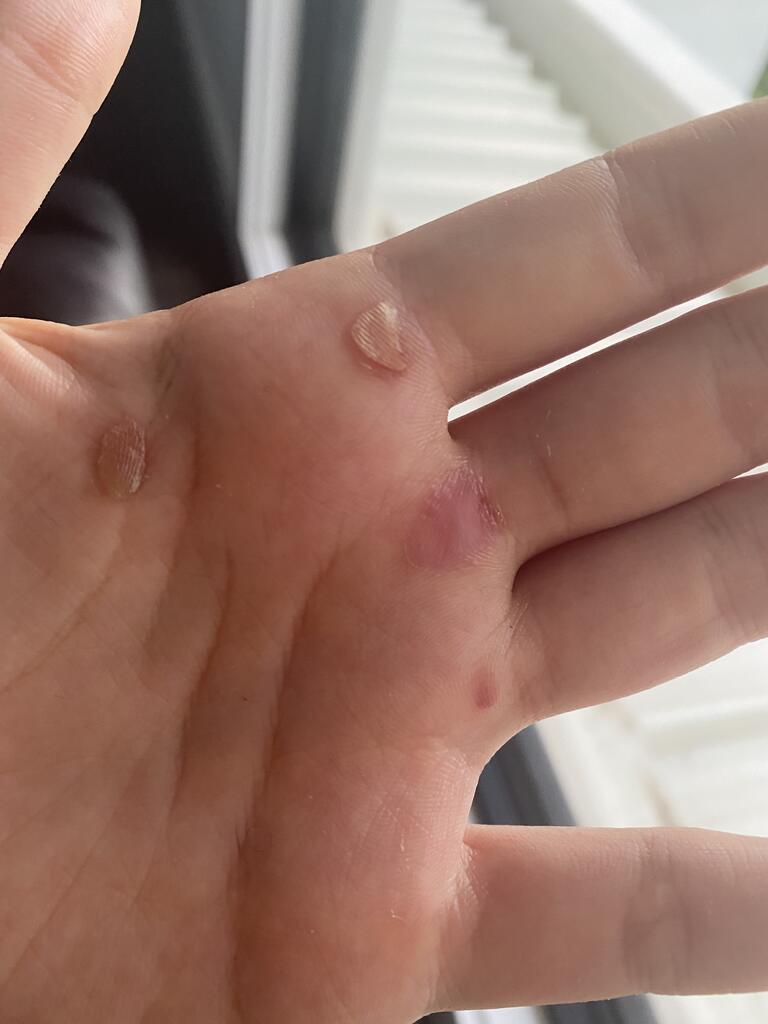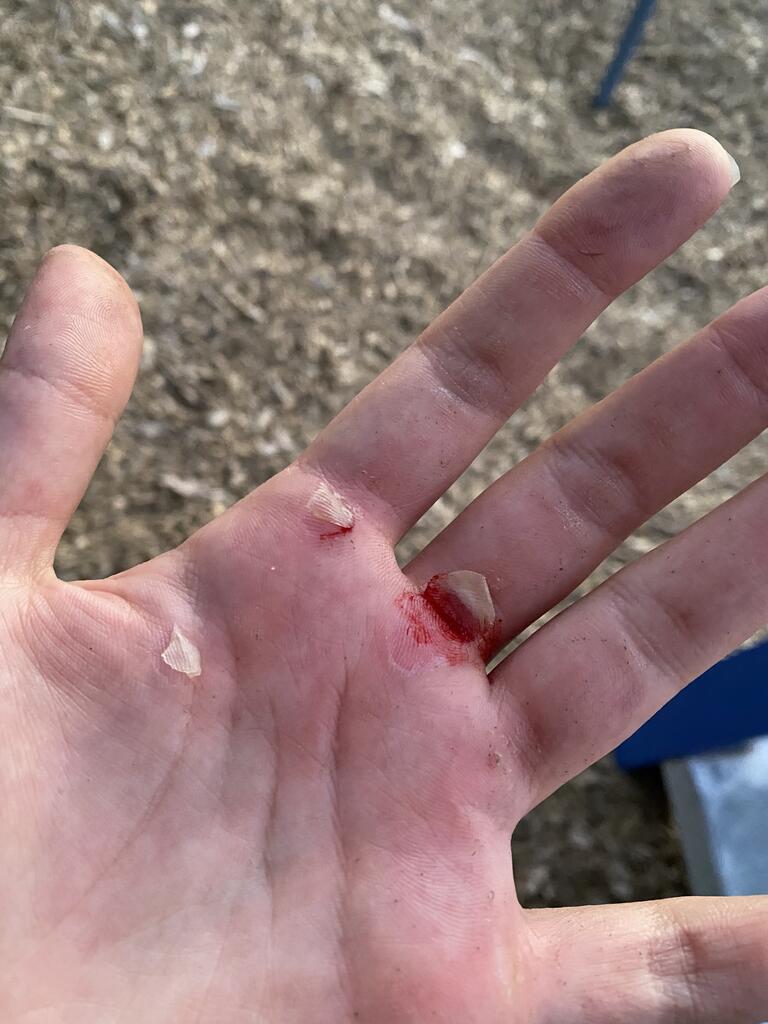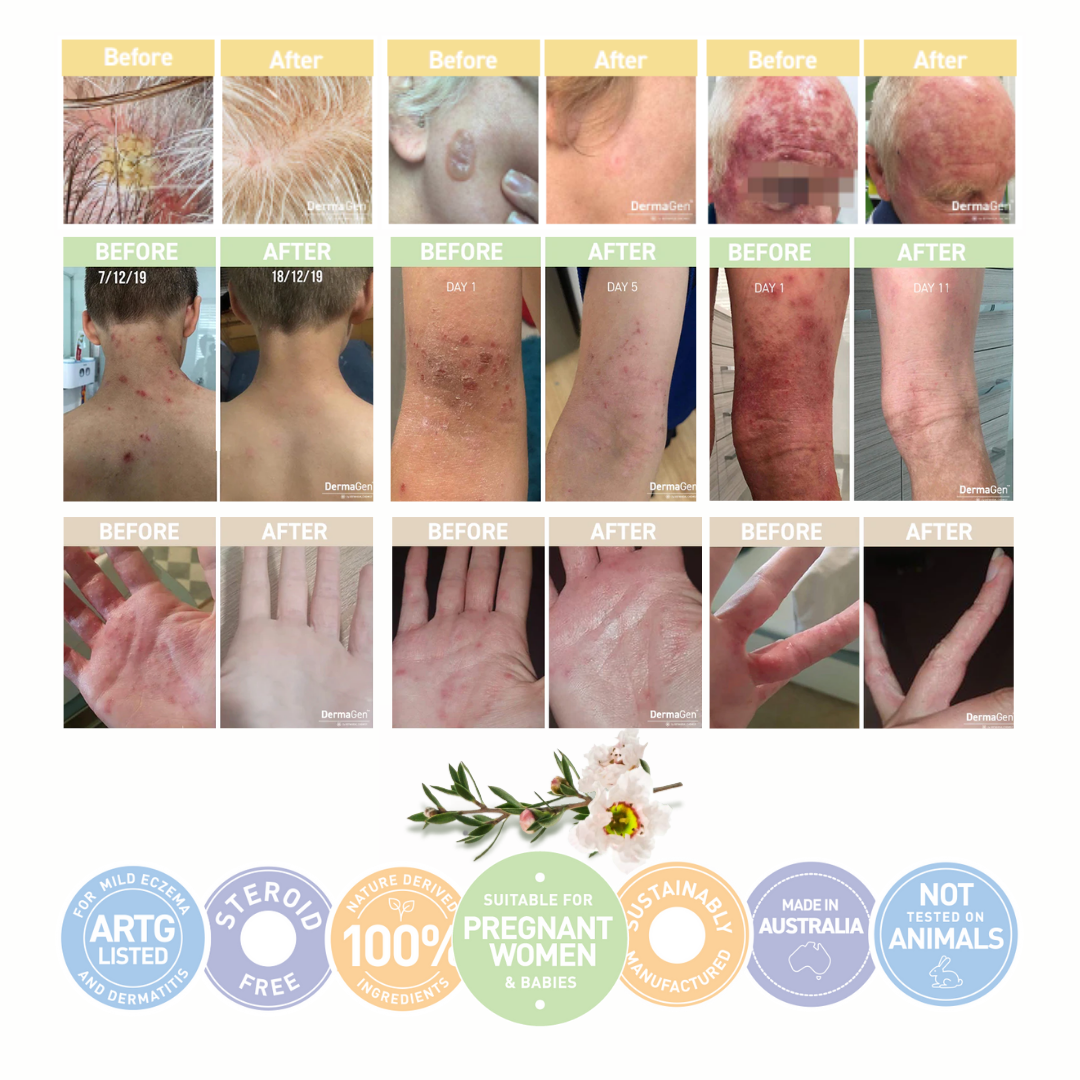Transforming Skin Care for Wound Recovery and Sun Damage Skin
Skin damage, whether from wounds or sun exposure, is more than just a surface issue. It affects the deeper layers of the skin, disrupting its natural structure and function. Our products are designed to address both visible damage and underlying cellular repair needs.
- Wound Healing: When the skin is wounded, it goes through a complex healing process involving inflammation, tissue formation, and remodeling. Proper care is crucial to prevent infection and minimize scarring. Our products support each stage of this process, promoting faster and more effective healing.
- Sun Damage Repair: Overexposure to the sun can lead to immediate effects like sunburn and long-term issues like premature aging and increased risk of skin cancer. Our sun damage recovery products focus on soothing burnt skin, repairing damage, and restoring skin health.
Dermagen's Unique Approach
- Pharmacist-Formulated Solutions: Every product in our range is carefully formulated by experienced pharmacists, ensuring the highest efficacy and safety standards.
- The Power of Manuka Oil: Central to our formulations is Manuka Oil, known for its remarkable healing properties. It helps in reducing inflammation, fighting bacteria, and promoting new, healthy skin growth.
- Sustainable and Kind to Skin: We believe in the power of natural ingredients and sustainable practices. Our products are gentle on the skin and the environment, free from harsh chemicals and synthetic additives.
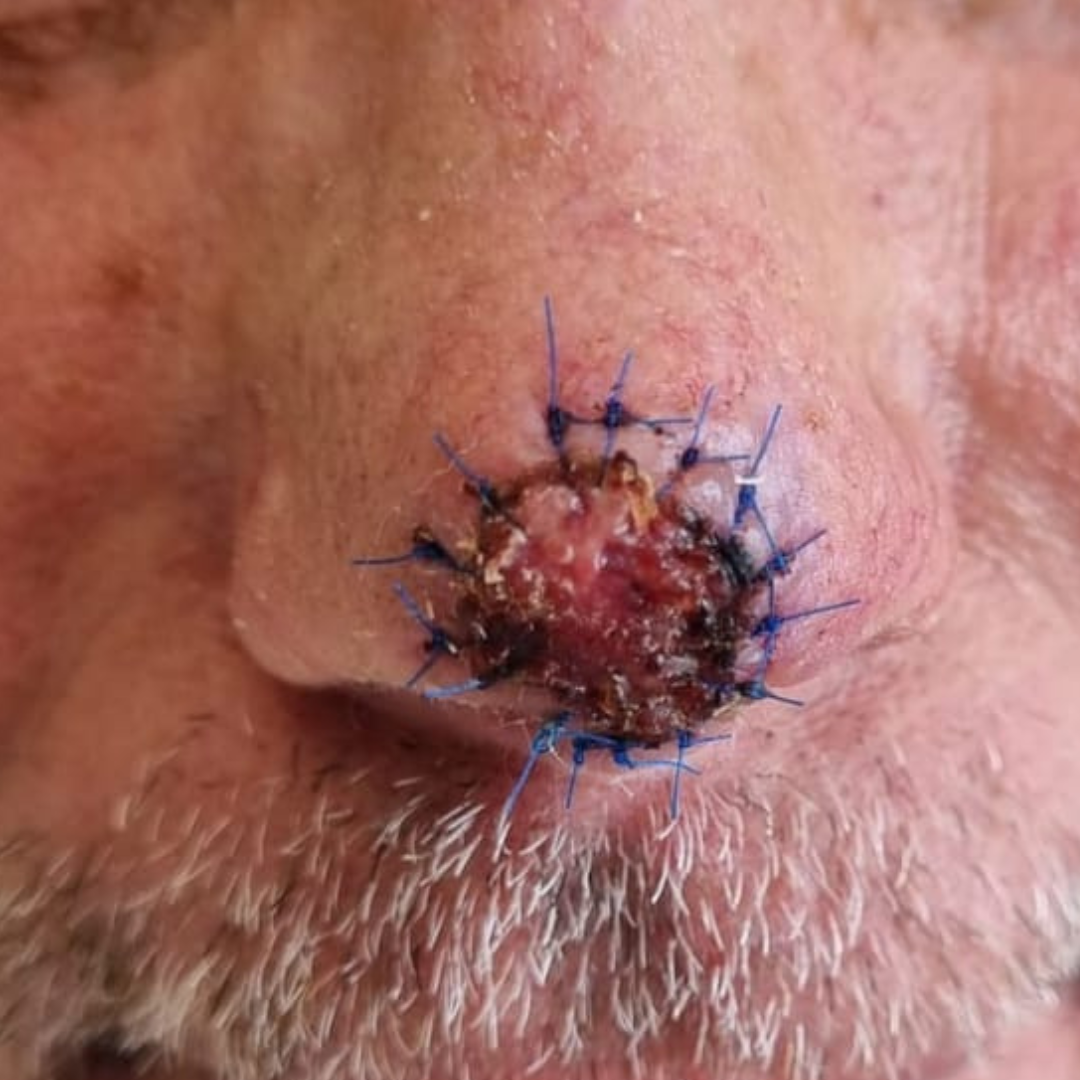
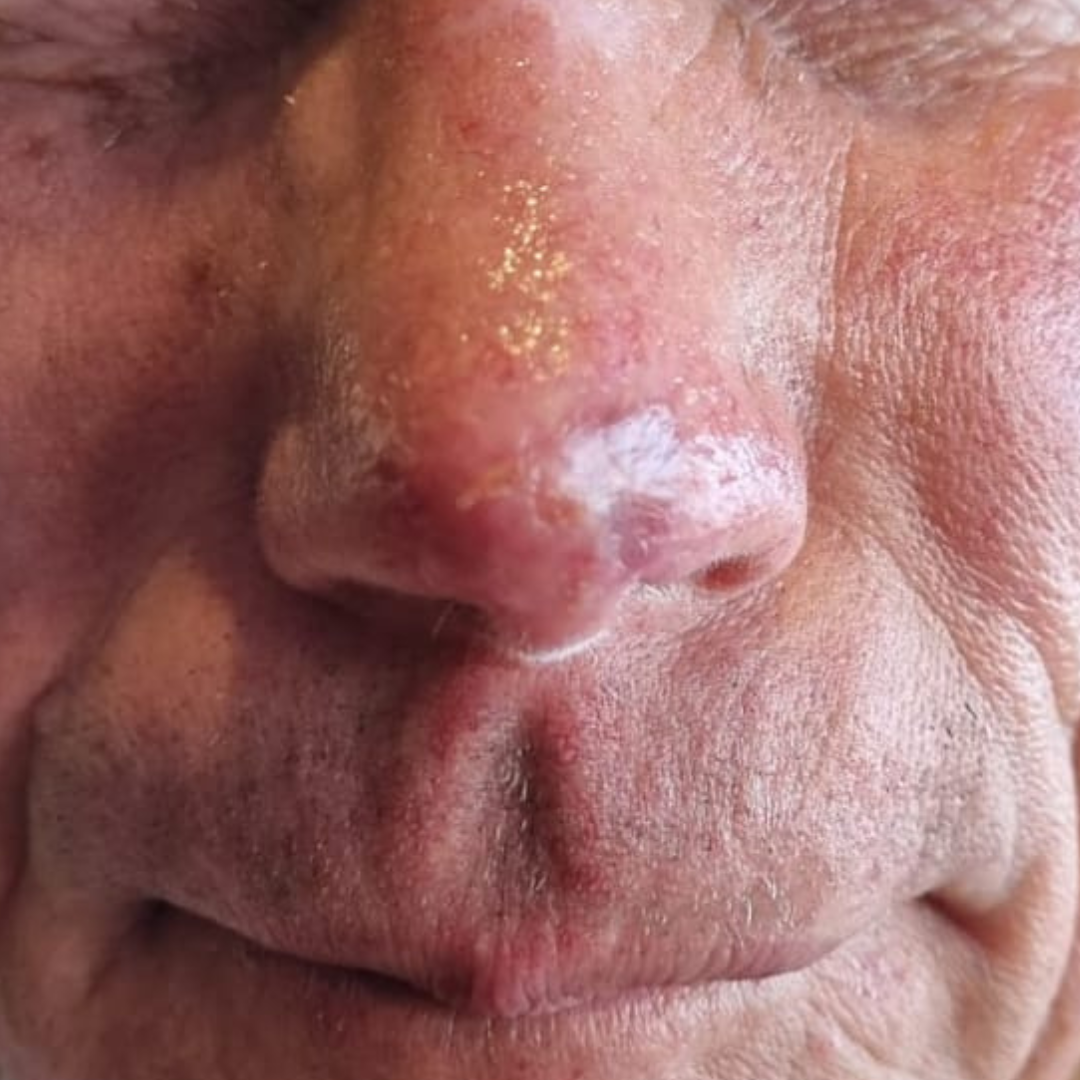
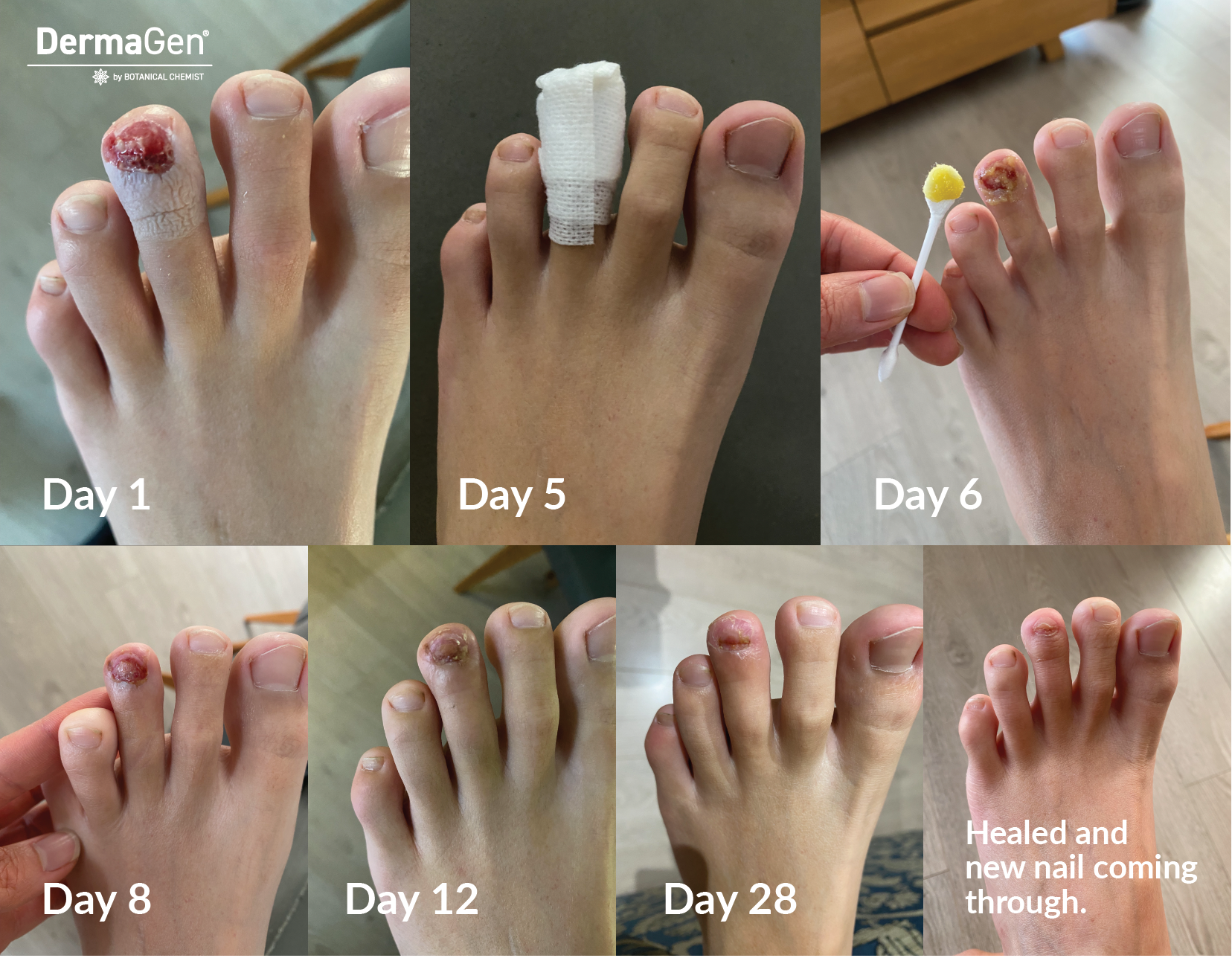
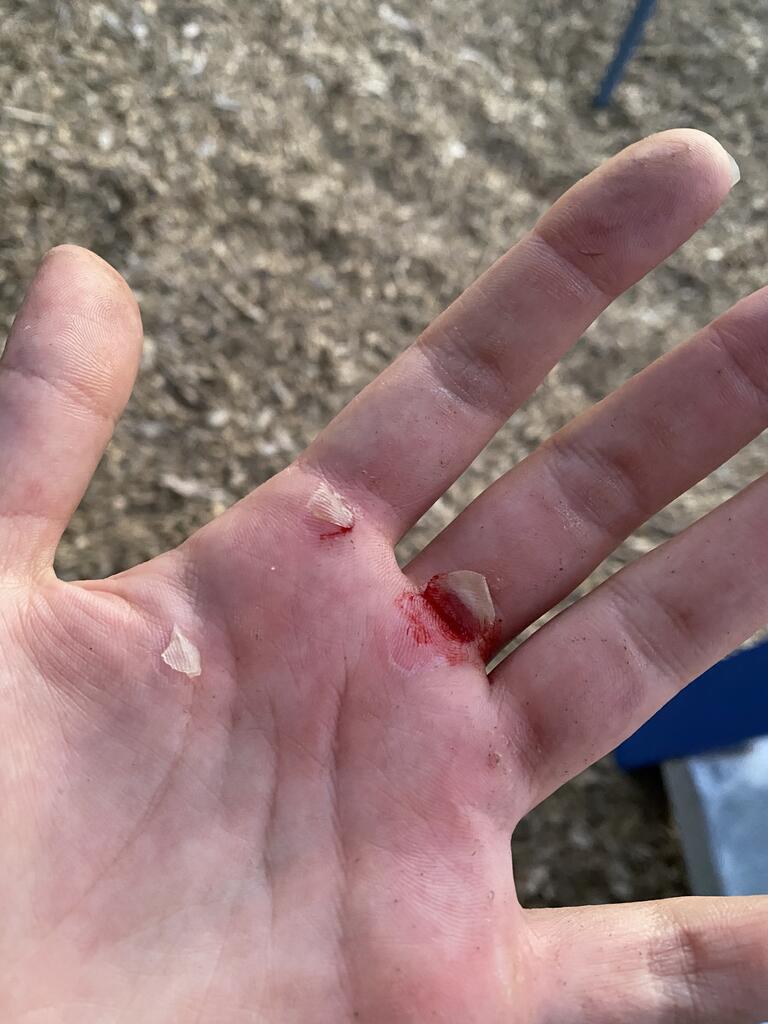
Rapid Recovery for Skin Grafts
After undergoing their third skin graft on the nose, they discovered the remarkable efficacy of our balm, achieving complete healing in just 10 days.
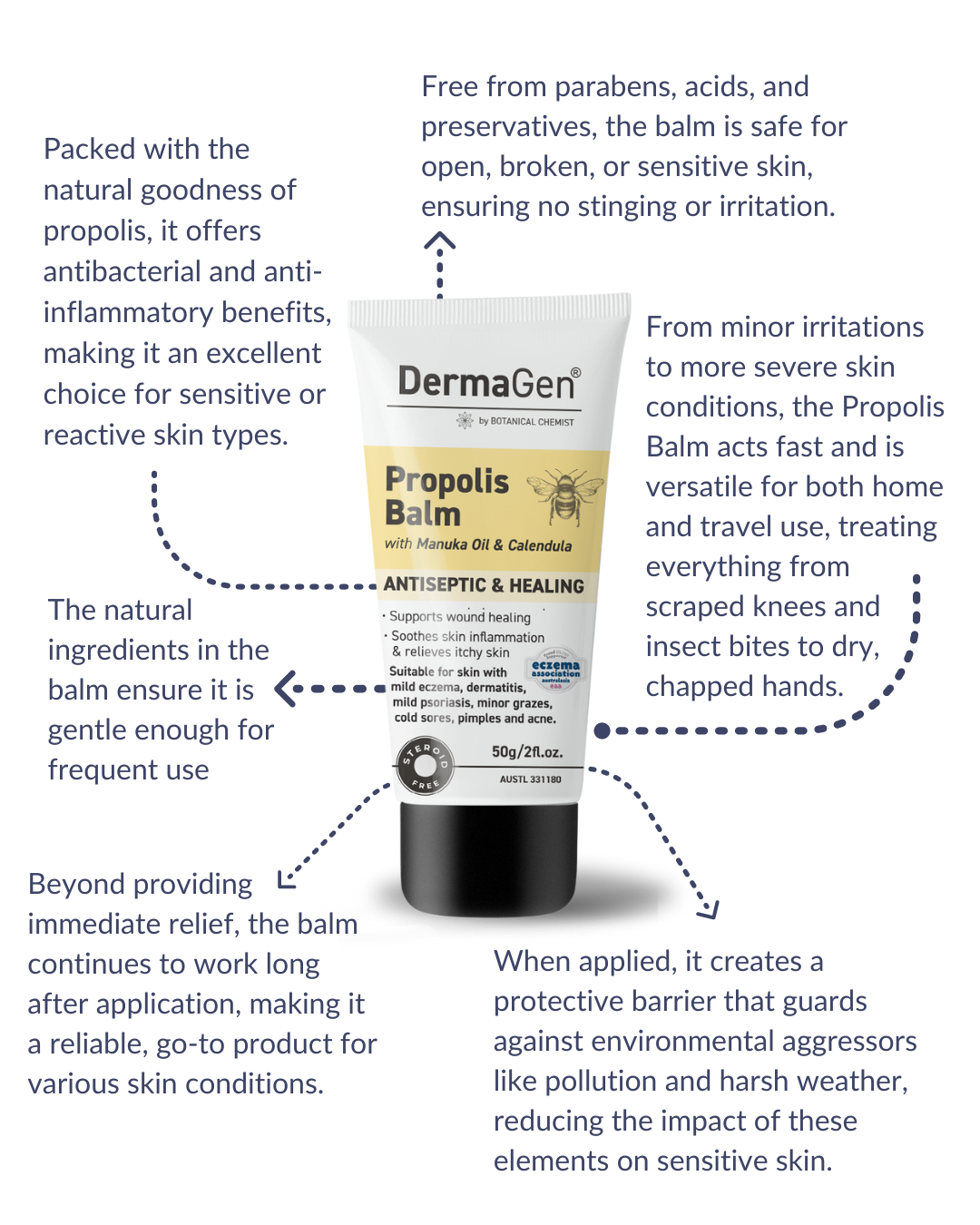
Why is the Propolis Balm a Game-Changer in Skin Healing?
- Potent Natural Propolis: The star ingredient, propolis, is renowned for its antiseptic and antibacterial properties. It plays a vital role in preventing infection and accelerating the skin's natural healing process.
- Soothing and Nourishing: Our balm is infused with a blend of natural oils and butters, providing the essential hydration and nourishment needed for rapid skin regeneration and reducing inflammation.
- Expertly Formulated: Developed by a pharmacist, the Propolis Balm is specifically designed to meet the delicate needs of healing skin, ensuring a gentle yet effective recovery.
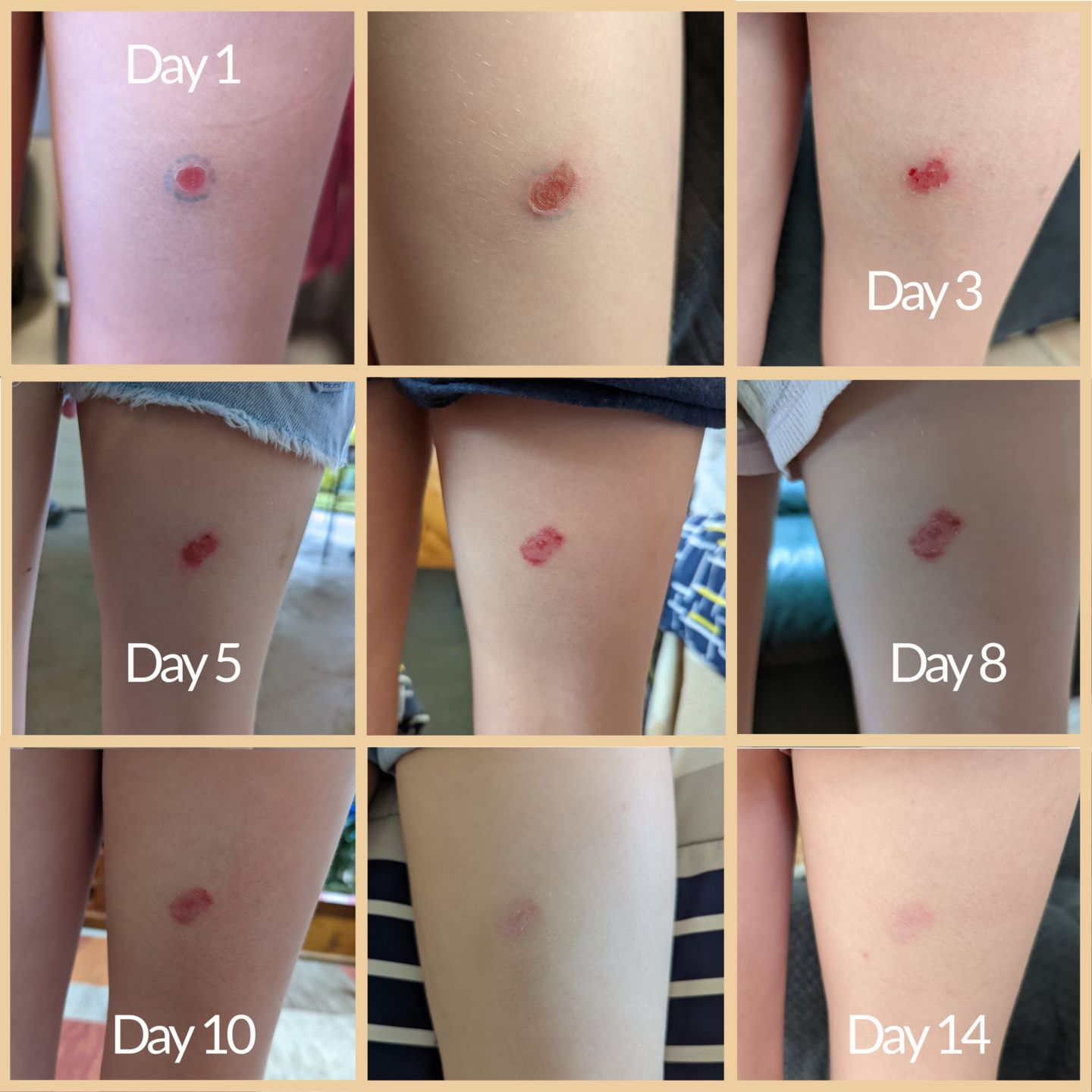
Solution for a White tail Spider Bite Solution
A mother's review highlighted the effectiveness of the Propolis Balm in treating her daughter's suspected white-tailed spider bite. This incident occurred during their Christmas travel, a challenging time for any unexpected health issues.
The Propolis Balm provided immediate relief and effectively healed the spider bite. The mother noted that her daughter experienced no discomfort, and the bite remained infection-free.
Incredible benefits for your skin 🐝
Propolis's natural composition provides a powerful defense against inflammation, bacteria, and fungi, making it an invaluable ingredient in our skincare products. Its antimicrobial activity, derived from the resilience of plants against environmental pathogens, is harnessed to protect and heal your skin.
This mothers story is just one of many that highlight the healing power of propolis in real-life scenarios.

"Each year over $3 billion from the health and aged care budgets is used to treat chronic wounds of about 420,000 Australians", according to Wounds Australia.
As a community pharmacist, I see so many minor skin injuries, cuts, scrapes, grazes, blisters and burns that can benefit from having a product that minimises skin infections, reduces soreness and inflammation, soothes skin irritations and itchy skin, and supports skin regeneration without stinging or irritating the skin.
TheManuka and Propolis balms by Dermagen have been such a soothing relief for many of our patients, and the results show how quickly skin can heal when given the right nutrients.
Key Factors Slowing Down Wound Healing
1. Reduced Oxygen from Poor Circulation: Oxygen is vital for wound healing, aiding in new blood vessel formation and infection prevention. However, poor circulation, often caused by diabetes, peripheral artery disease, or smoking, can limit oxygen and nutrient delivery to the wound, delaying healing.
2. Infection and Biofilm Formation: Infections can lead to bacteria forming a biofilm, a resistant layer that hinders wound closure and healing. This not only slows down the healing process but can also cause increased inflammation and tissue damage. Preventing infection through regular cleaning and proper wound care is crucial.
3. Stress and Weakened Immunity: Both physical and emotional stress can disrupt hormonal balance and weaken the immune system, impairing the body's healing capability. Chronic stress may lead to poor lifestyle choices, further hindering recovery. Conditions like HIV/AIDS or chemotherapy treatments also weaken immunity, complicating wound healing. Managing stress and maintaining a healthy lifestyle are essential for effective wound recovery.
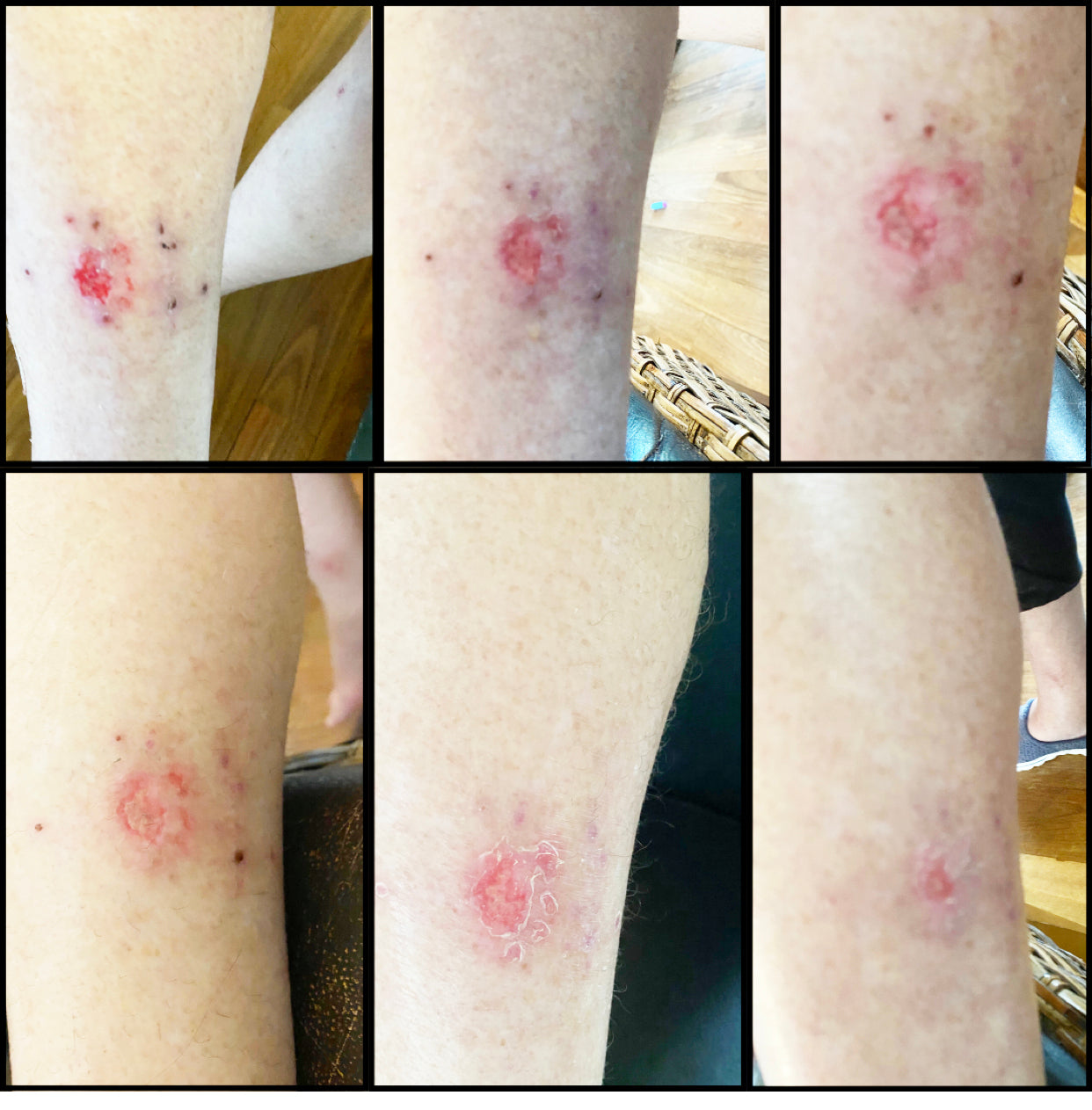
Diabetic Ulcer Treatment
Active 8 Serum and Propolis Balm have demonstrated remarkable efficacy in treating diabetic ulcers, a challenging and often persistent complication for those with diabetes.
The Challenge:
Diabetic ulcers, especially on the legs, can be slow-healing and prone to infection, typically requiring lengthy treatments with antibiotics and steroids.
The Dermagen Solution:
A user shared a compelling story about her mother-in-law's diabetic ulcer. Traditionally, such ulcers would take months to heal. However, using Dermagen's Active 8 Serum and Propolis Balm, the ulcer healed completely in just 7 days.
Treatment Approach:
- Active 8 Serum: Applied twice daily, this serum provided essential nutrients and prepared the skin for further treatment.
- Propolis Balm: Known for its potent healing properties in diabetic ulcers, Propolis Balm was applied in the morning. Its antibacterial and anti-inflammatory qualities are particularly effective in accelerating diabetic ulcer healing.
The Outcome:
This regimen led to an unexpectedly quick recovery, showcasing the potential of Dermagen's products in diabetic ulcer treatment and emphasising the effectiveness of natural, holistic skincare approaches.
Anti-inflammatory Action
The balm can reduce inflammation around the wound, which is crucial for alleviating pain and promoting faster healing.
Best thing is, our balms have anti-septic properties, reduce the inflammation, soothes the pain, promotes skin regeneration and the natural oils and waxes keep the site hydrated!
These benefits help to ensure minor wounds, cuts, scrapes, stitches, blisters and sores heal quicker with very little scarring.
Supplements that can help with skin healing have high amounts of antioxidants or flavonoids as they reduce free radical damage at the site of injury and help new cells regenerate. Vitamin C is a well-known antioxidant which helps with collagen formation.
We recommend the Herbs of Gold Vitamin C 1000 Plus as a general supplement if you are needing at extra boost of antioxidants and Zinc.
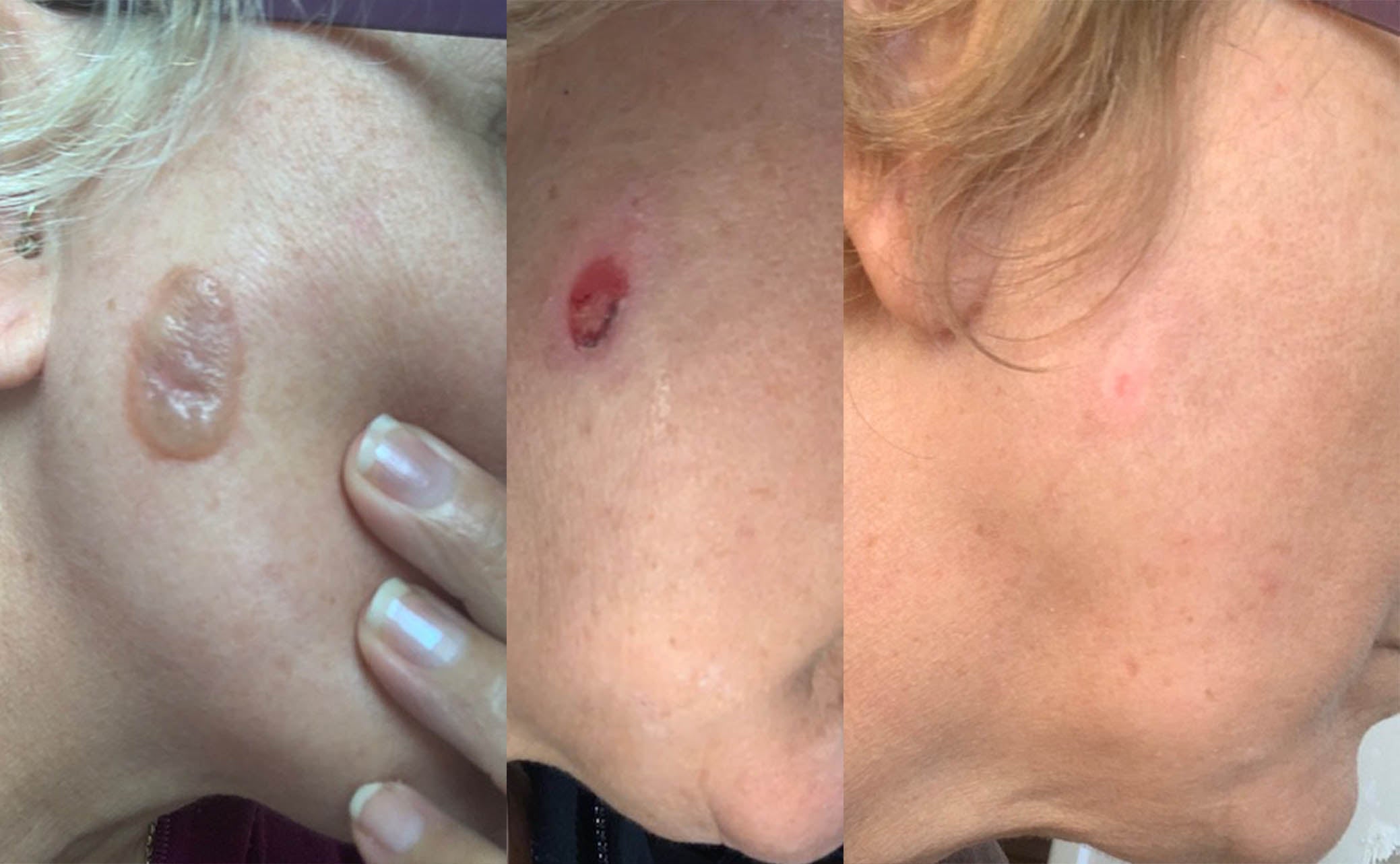
Propolis Balm was applied twice a day
This customer had a BCC frozen with liquid nitrogen, and a blister had developed. The Propolis Balm was applied twice a day, and the blister healed nicely with very little scarring.

Manuka Oil Balm was applied once day
Pair text with an image to focus on your chosen product, collection, or blog post. Add details on availability, style, or even provide a review.
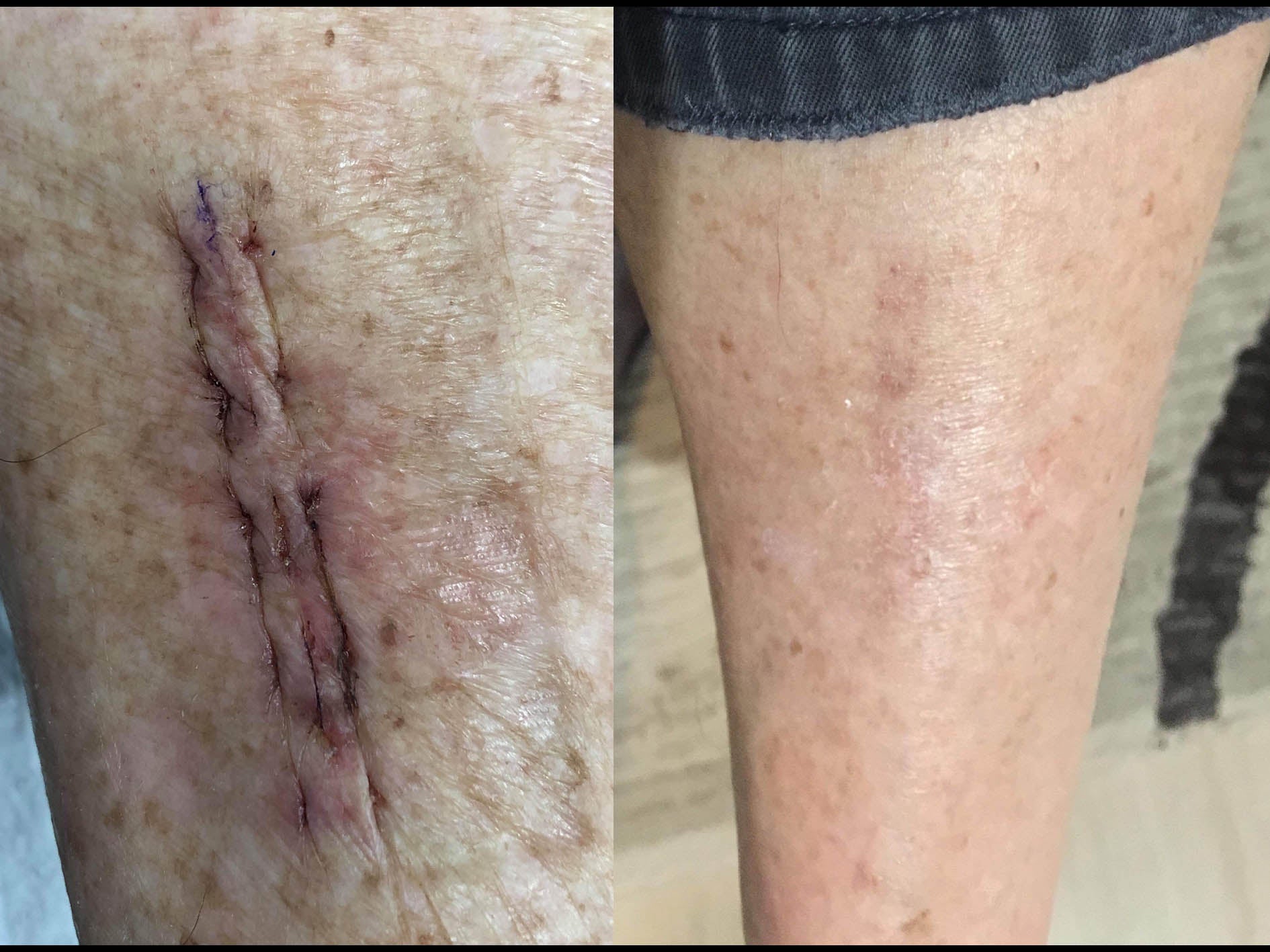
Propolis Balm was applied twice a day
This customer had stitches after a removal of a skin cancer. Propolis Balm was applied twice a day and the skin healed nicely with very little scarring.
Testimonials







Kay PrendergastWe have been using the skin radiance lotion for a couple of years now.
My husband suffers from skin cancers. Before we commenced using the radiance lotion, his face was red, blotchy, dry flake skin.
Since using the radiance lotion the improvement in his skin on his face has been much improved.
We had an appointment with a dermatologist a few weeks ago, & even she commented in how good the skin in his face was. She was very impressed.
Julie OFollowing my sisters advice I have been purchasing DermaGen products for some time now. I have a very dry sun damaged skin and a skin condition called morphea.
The combination of the oil and balm really helps all my conditions especially taking the pain and itchiness out of the areas affected by the morphea. Delivery is prompt and customer service cannot be faulted.
Judith HillBest product I've used, and I've tried many
I started using this Balm on my face with good results so then went on to lower legs and arms. All sundamaged areas (make that acreages - ha,ha.), so need big pot.
I have used many products over the years and yours is the best.
Wendy NUtterly amazed with this lotion
I'm absolutely loving your products.I have very sun-damaged skin with a lot of sun spots and since using this lotion I'm pleased and utterly amazed at what it has done for my skin.
This is by far the best skin lotion I have ever used and I'm so ever grateful for such an excellent product.
Marnie KellySkin cancer treatment
My Dad had a large number of skin cancers ( Basal cell carcinoma) burnt off with liquid nitrogen by his skin specialist.He has to have this done fairly regularly as a preventative treatment and although necessary it leaves his skin angry, inflamed and very sore.
He decided to try the DG Manuka balm as an alternative to the prescribed steroid cream.
The results were amazing not only did the balm sooth and heal the skin but there is also a lot less scarring than he has been left with previously.
Bonita AFantastic for blisters caused by photosensitivity!
My oldest daughter is photosensitive and breaks out in blisters on her forehead from as little as 10 minutes of sun exposure.
We used the Propolis balm on her newly developed blisters and they were almost fully healed the next day!
With the Propolis balm, it didn't make any harsh scabs or leave her with any discoloured spots or scars.
Sarah WilliamLove, love , love
I have been using the trio for two weeks now.
I have been using the serum and skin radiance lotion twice a day and have noticed that my skin is hydrated and it has reduced the red splotches.It is always working wonders on my sun damaged cheeks.
I also used both products on my forehead where it looked like it was about to start peopling and haven’t had any peeling occur since .
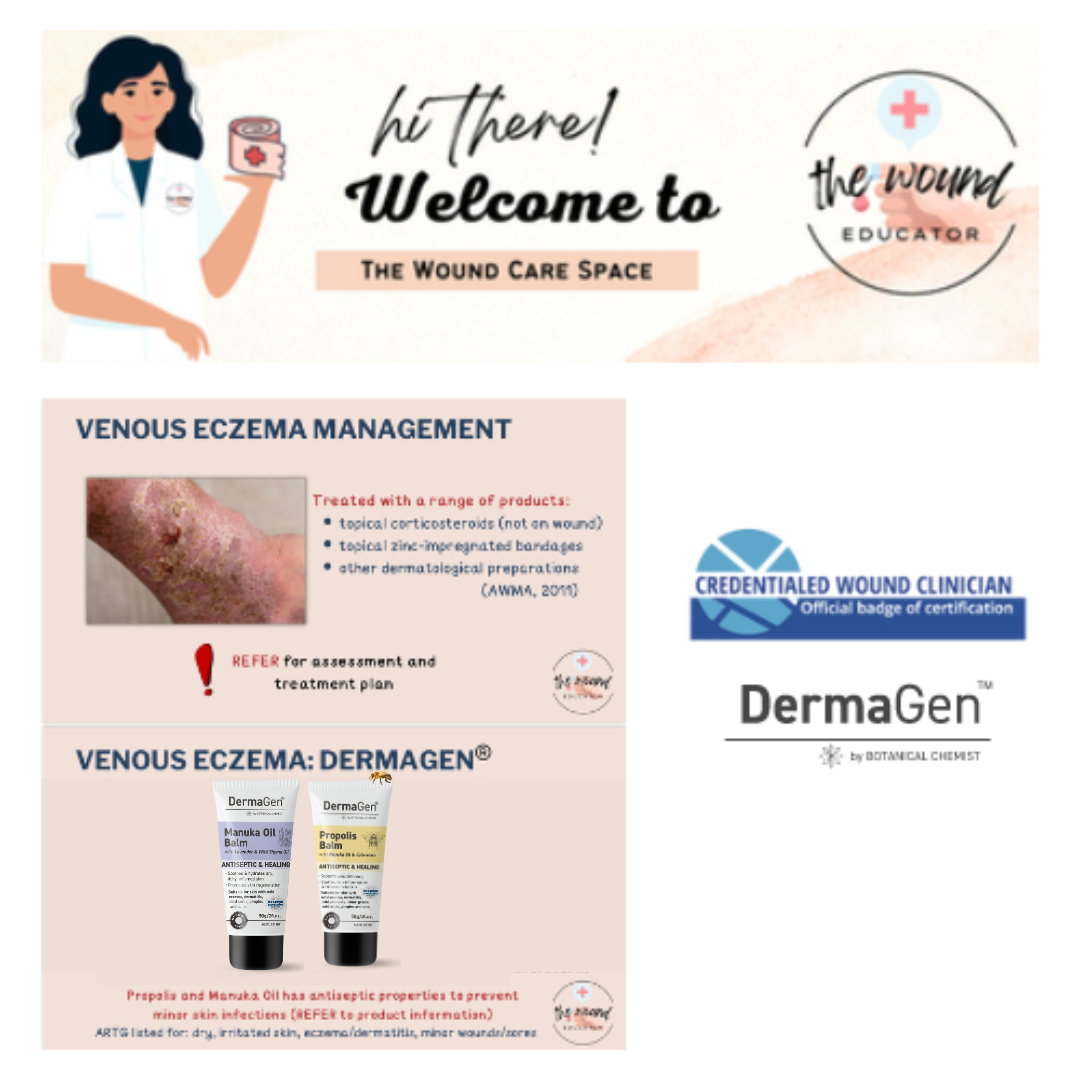
Working with The Wound Care Space
We are proud to be a part and sponsor this training that has been designed by Lusi from The Wound Educator.
Lusi is a credentialed Wound Care Clinician and helped establish pharmacy-based Wound Care and Compression clinics in WA.
Lusi's goal is to help more pharmacists provide optimal wound care outcomes and forge a new career pathway.


